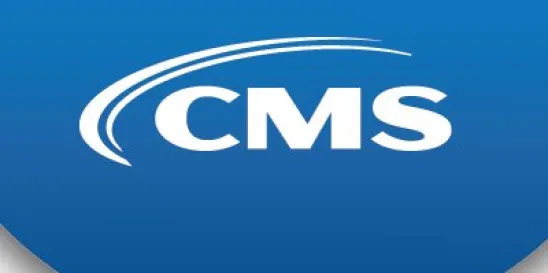On November 2, 2023, the Centers for Medicare and Medicaid Services (CMS) issued its 2024 Physician Fee Schedule final rule (Final Rule) for calendar year 2024 that will, in part, implement some of the most important changes to improve access to behavioral health care in Medicare’s history. These changes further the goals of CMS’s Behavioral Health Strategy as follows:
- For the first time, CMS allows Marriage and Family Therapists (MFTs) and Mental Health Counselors (MHCs) to enroll in Medicare Part B and bill for their services.
- CMS expands billing flexibilities through the creation of new codes, modifying some Conditions of Participation and Conditions for Coverage, and allows existing behavioral health codes to be billed by more types of providers.
In an on-going attempt to meet its goals of improving access to and the quality of mental health services, the Final Rule includes a number of changes that modernize and expand Medicare coverage. As a result, provider organizations and investors in the behavioral health sector can plan for additional Medicare revenue opportunities.
New Provider Types Established; Medicare Enrollment
In our 2023 Physician Fee Schedule rule summary, we noted that CMS acknowledged it did not have the regulatory authority to create new reimbursable practitioner types. However, this changed with the 2023 Consolidated Appropriations Act (CAA), in which Congress established a new benefit category for MFTs and MHCs. The Final Rule implements regulations allowing these providers to bill for the diagnosis and treatment of mental illnesses (other than services furnished to an inpatient of a hospital).
Medicare defines an MFT as an individual who:
- Possesses a master’s or doctorate degree which qualifies for licensure or certification as a MFT under State law of the State in which such individual furnishes marriage and family therapist services,
- Is licensed or certified as an MFT by the State in which they furnish services,
- Has performed at least two years of clinical supervised experience in marriage and family therapy or mental health counseling after obtaining the degree referenced above, and
- Meets other requirements as the Secretary of Health and Human Services (HHS) determines appropriate.
An MHC as an individual who:
- Possesses a master’s or doctorate degree which qualifies for licensure or certification as a MHC, clinical professional counselor, or professional counselor under State law of the State in which such individual furnishes MHC service,
- Is licensed or certified as an MHC, clinical professional counselor, or professional counselor by the State in which they furnish services,
- Has performed at least two years of clinical supervised experience in marriage and family therapy or mental health counseling after obtaining the degree referenced above, and
- Meets other requirements as the Secretary of HHS determines appropriate.
Additionally, CMS acknowledged that states use varying terms to define MFTs and MHCs and, importantly, other clinician categories/designations under state law. For example, licensed or certified professional counselors including addiction counselors or drug and alcohol counselors, may enroll in Medicare as MHCs provided they meet applicable requirements for MHCs.
MFTs and MHCs will be able to enroll in Medicare starting November 2, 2023, and begin to bill for their services on January 1, 2024. Note that although providers can enroll in Medicare as of November 2, 2023, MFTs/MHCs will not be granted an effective date for their enrollment earlier than January 1, 2024, so claims with dates of service prior to January 1, 2024, will not be payable. MFT and MHC services can be billed at 80% of the lesser of either (1) the actual charge for the services or (2) 75% of the amount determined for payment of a psychologist.
CMS published a Provider Enrollment FAQ document for MFTs and MHCs who can enroll with Medicare using the CMS-855I enrollment application. Note that the paper CMS-855I application does not list MFT and MHC specialties (applicants are advised to select the “Undefined Non-Physician Practitioner Specialty” option in section 2H and specify MFT or MHC in the space provided), however, the Medicare Provider Enrollment, Chain, and Ownership System’s online application will include these specialties as of November 2023.
Expanding Billing Flexibilities
In addition to establishing new provider benefit categories, CMS increased various billing flexibilities to increase access to behavioral health services through the creation of new codes, modifying Conditions of Participation and Conditions for Coverage, and allowing existing behavioral health codes to be billed by more types of providers.
First, CMS is implementing various other sections of the CAA to establish new Healthcare Common Procedure Coding System codes for psychotherapy for crisis services furnished at applicable sites of service. An applicable site of service is considered any place of service at which the non-facility rate for psychotherapy for crisis services applies, other than the office setting. These services can also be furnished at home, a mobile unit or even via telehealth as long as requirements are met. Specifically, payment for these crisis services shall be equal to 150% of the fee schedule amount for non-facility sites. This change is designed to increase the number of providers willing to provide these services and address issues of access and availability of crisis services. Generally, for services furnished in an office setting, Medicare reimburses physicians and practitioners at a rate based on a full range of resources utilized to deliver the service. On the other hand, services delivered to physicians and other practitioners in a facility setting (e.g., hospital or an ambulatory surgical center) are reimbursed only for those resources typically incurred by the practitioner while furnishing the service, i.e., the clinician receives a lower payment amount to reflect their lower costs.
Next, CMS is finalizing its proposal to modify hospice Conditions of Participation to allow MFTs and MHCs to serve as members of the hospice interdisciplinary group. Relatedly, CMS is finalizing the requirements for the Rural Health Clinics and Federally Qualified Health Centers Conditions for Certification and Conditions for Coverage to allow MFTs and MHCs to provide additional behavioral health services at these locations.
Additionally, CMS has finalized its proposal that Health Behavior Assessment and Intervention (HBAI) services may now be billed by more provider types. Previously only open to clinical psychologists, clinical social workers, MFTs and MHCs may now bill these codes used to identify potential psychological, behavioral, emotional, cognitive, and social factors which may impact the treatment of physical health problems. CMS hopes expanding the range of practitioner types who can furnish these services (and be paid for them) will allow for a better integration of physical and behavioral health care.
Key Takeaways
These changes promise to increase access to quality behavioral health to Medicare beneficiaries across the country. Providers and behavioral health companies should celebrate these investments in improving access to behavioral health services. On a practical level, these changes will allow behavioral health providers to leverage a large sector of qualified clinicians (MFTs and MHCs). Steps can be taken now to enroll and credential these clinicians in Medicare and implement clinical protocols and policies to appropriately integrate these clinicians into the outpatient plan of care for Medicare beneficiaries, as well as hospice interdisciplinary teams, crisis response programs, and HBAI services.





 />i
/>i